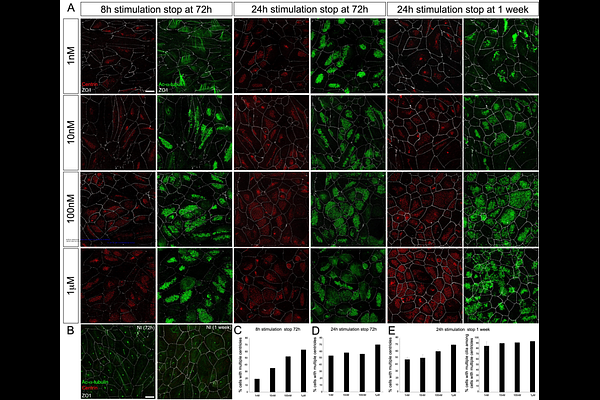Deciphering the dynamic proteome of multiciliated cells

Deciphering the dynamic proteome of multiciliated cells
Boutin, C.; Rosnet, O.; Touret, M.; Audebert, S.; Camoin, L.; Dussert, S.; Brouilly, N.; Thome, V.; Fortun, D.; Borg, J.-P.; Kodjabachian, L.
AbstractMulticiliated cells (MCCs) are essential for generating directional fluid flow across specialized epithelia in various vertebrate organs. MCC differentiation involves a unique, tightly regulated program characterized by massive centriole amplification, independently of DNA replication. Although much is known about the transcriptional control of MCC development, insights into proteome dynamics have been limited due to the lack of suitable models. In this study, we report the generation of a stable inducible MCC line, derived from Xenopus laevis A6 kidney epithelial cells. Upon induction of the MCC master regulator Multicilin (MCI), most A6-MCI cells synchronously differentiate into mature MCCs in 48 hours. Using this novel resource, custom antibodies and super-resolution imaging, we characterized Xenopus deuterosomes, the platforms that allow massive centriole synthesis in vertebrate MCCs. We performed a detailed proteomic profiling throughout MCC differentiation, and uncovered previously uncharacterized regulators. Notably, we highlight a critical role for CDK7 in MCC differentiation in both Xenopus and human systems. Our work provides a valuable resource for mechanistic studies of MCC biology and opens avenues to identify novel therapeutic targets for motile ciliopathies.